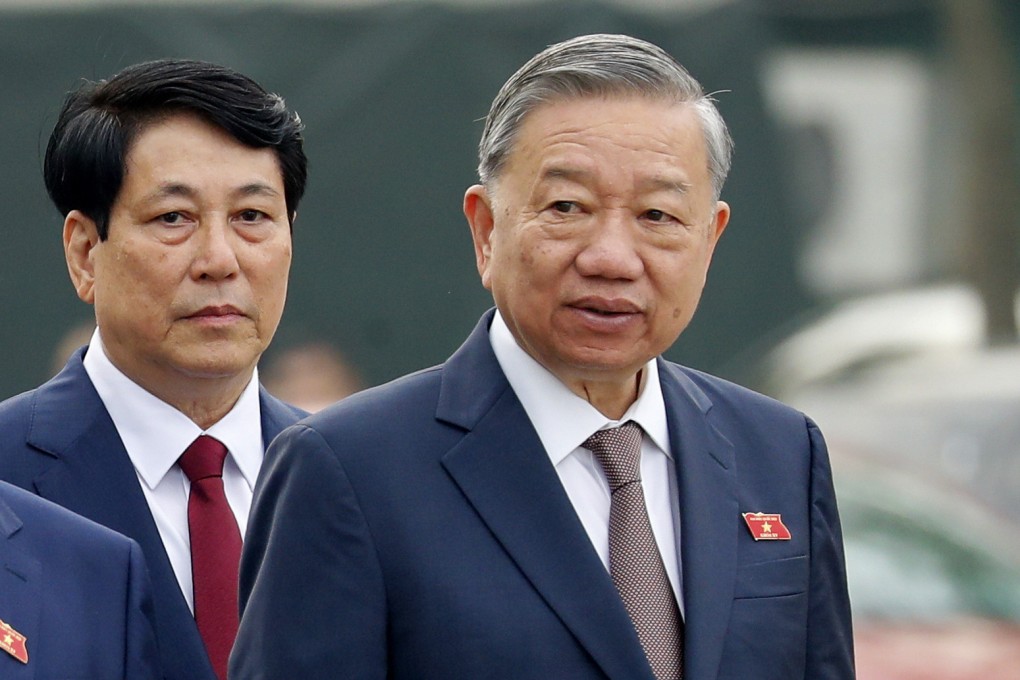Opinion | Can Vietnam’s new president check the power of its party chief?
Foreign investors and diplomats might soon start looking back with nostalgia on the days of dispute within Vietnam’s Communist Party

There is a hint of wishful thinking in seeing the appointment of a four-star general as Vietnam’s new president to balance the influence of the domestic security hawks with increased authority for the military as a welcome return to normalcy in Hanoi.
Yet what power-sharing stability exists is now almost entirely divided between the military and public security apparatus – who now occupy the majority of seats in the Politburo – while most other consensus-seeking checks and balances exist to be ignored.
But whereas Trong was an ideologue who saw the concentration of power as a justifiable means to restore socialist morality to a party existentially challenged by corruption, To Lam – formerly the public security minister and Trong’s enforcer – holds no such lofty illusions. His power grab is motivated by more parochial concerns.

